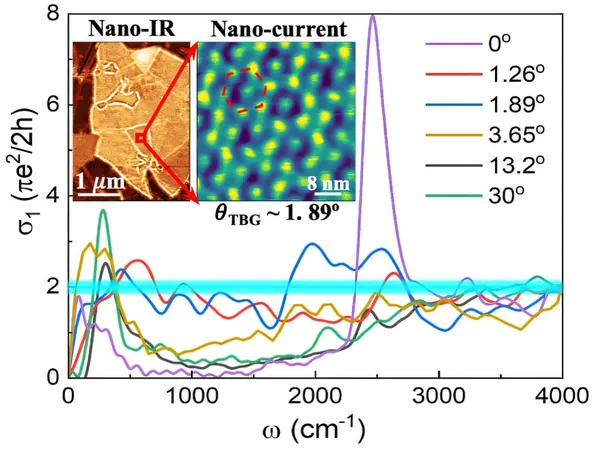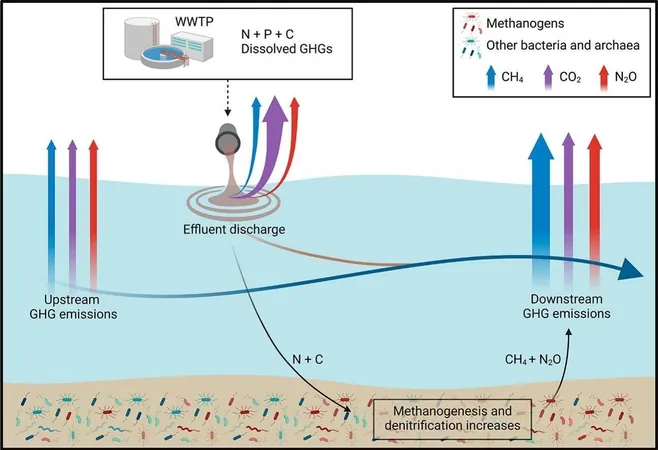
More Hot Flashes? Beware! Your Risk for Type 2 Diabetes Might Be Higher!
2024-11-04
Author: Emma
Hot Flashes and Diabetes Risk
Menopausal women experiencing frequent hot flashes and night sweats should pay attention: a new study reveals that these symptoms could significantly increase the risk of developing type 2 diabetes.
The Study
According to research published in JAMA Network Open, middle-aged women who frequently endure these distressing menopausal symptoms face an astonishing 50% greater likelihood of being diagnosed with type 2 diabetes. Researchers, led by Monique Hedderson from Kaiser Permanente Division of Research, emphasize a pressing need for further investigation into the complex relationship between these symptoms and broader health risks.
Participants and Findings
The study analyzed data from over 2,700 participants in a long-term national health study focusing on women's health in the United States. These women, initially between the ages of 42 and 52 in the mid-1990s, have been monitored for nearly two decades.
About 28% of the women reported experiencing menopause symptoms one to five days within a two-week period, while a striking 10% reported symptoms six or more days a week. Notably, those suffering from persistent hot flashes and night sweats—referred to by experts as vasomotor symptoms—were found to have a substantial increase in their diabetes risk.
Expert Insights
“This research reinforces a growing body of evidence highlighting the critical importance of vasomotor symptoms in relation to women's cardiovascular and metabolic health, especially when experienced chronically,” remarked senior researcher Rebecca Thurston, director of the Center for Women’s Biobehavioral Health at the University of Pittsburgh. The provocative question remains: Are hot flashes merely an inconvenience, or are they harbingers of more significant health issues?
Potential Connections with Other Health Issues
While researchers have yet to establish a clear connection between these symptoms and heightened diabetes risk, links to heart disease have been noted. Both conditions may share common factors such as inflammation, poor sleep quality, and obesity. Hedderson points out that menopause has long been a neglected subject in medical research. “More studies are needed to unravel the mechanisms connecting vasomotor symptoms with dangerous health outcomes,” she stated.
Future Research Directions
Looking ahead, researchers plan to focus on women who experience the most severe hot flashes and night sweats. With up to 70% of women allegedly encountering some form of vasomotor symptoms during menopause, the study zeroes in on a smaller group that suffers significantly.
Additionally, future research aims to explore how menopausal symptoms may relate to other health concerns, including cognitive function. “One of our next steps involves investigating the interplay between vasomotor symptoms and cognitive health,” Hedderson noted.
Conclusion and Recommendations
In light of these findings, it becomes crucial for menopausal women to stay informed and proactive about their health. Regular check-ups and discussions with healthcare professionals can help manage symptoms and potentially reduce the risk of developing serious conditions like type 2 diabetes.
Stay alert, ladies! What you experience during menopause might be more consequential than you think!









 Brasil (PT)
Brasil (PT)
 Canada (EN)
Canada (EN)
 Chile (ES)
Chile (ES)
 España (ES)
España (ES)
 France (FR)
France (FR)
 Hong Kong (EN)
Hong Kong (EN)
 Italia (IT)
Italia (IT)
 日本 (JA)
日本 (JA)
 Magyarország (HU)
Magyarország (HU)
 Norge (NO)
Norge (NO)
 Polska (PL)
Polska (PL)
 Schweiz (DE)
Schweiz (DE)
 Singapore (EN)
Singapore (EN)
 Sverige (SV)
Sverige (SV)
 Suomi (FI)
Suomi (FI)
 Türkiye (TR)
Türkiye (TR)